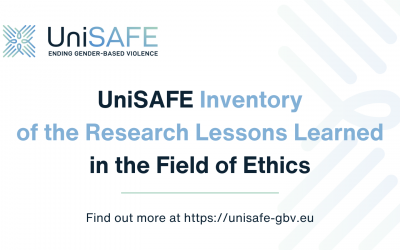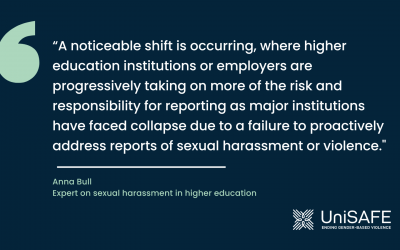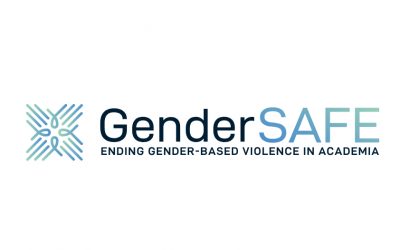UniSAFE has released an inventory of policies and measures that respond to gender-based violence and sexual harassment (GBV) in European universities and research organisations.
Authored by Averil Huck, Zuzana Andreska, Jana Dvořáčková, and Marcela Linková from the Institute of Sociology of the Czech Academy of Sciences (ISAS), the inventory aggregates a set of country reports and provides a typology of measures, including a mapping of actors involved in their implementation.
UniSAFE has a dual objective: to produce robust knowledge on GBV in universities and research organisations and to translate this knowledge into operational tools and recommendations for universities, research organisations, and policy-makers designed to reduce GBV. To produce knowledge, the project uses a holistic research model:
- The first one, at the micro level, is the study of the prevalence and impacts of GBV at 48 institutions.
- The second one, at the meso level, is a study of organisational responses and infrastructure, which will be studied using in-depth case studies, interviews, and a strategic mapping of research organisations in 15 EU countries.
- The third one, at the macro level, is an analysis of legal and policy frameworks that focuses specifically on GBV in universities and research organisations, and that was carried out in cooperation with national experts in 27 EU member states, four Associated Countries, and two Third Countries.
This report presents a meso-level analysis of organisational responses and infrastructures through a strategic mapping of 48 universities and research organisations’ GBV policies included in the UniSAFE sample in 15 European countries.
Its main objective is to provide an inventory of policies and measures to address and combat GBV in European universities and research organisations. To this end, it aggregates, thanks to the work of national researchers, organisational-level policies, measures, and actions in 11 EU-27 countries (Belgium, the Czech Republic, Finland, France, Germany, Ireland, Italy, Lithuania, Poland, Spain, Sweden) and four Associated Countries (Iceland, Serbia, Turkey, the United Kingdom). The mapping covers a period of six years, from 2015 to October 2021.



